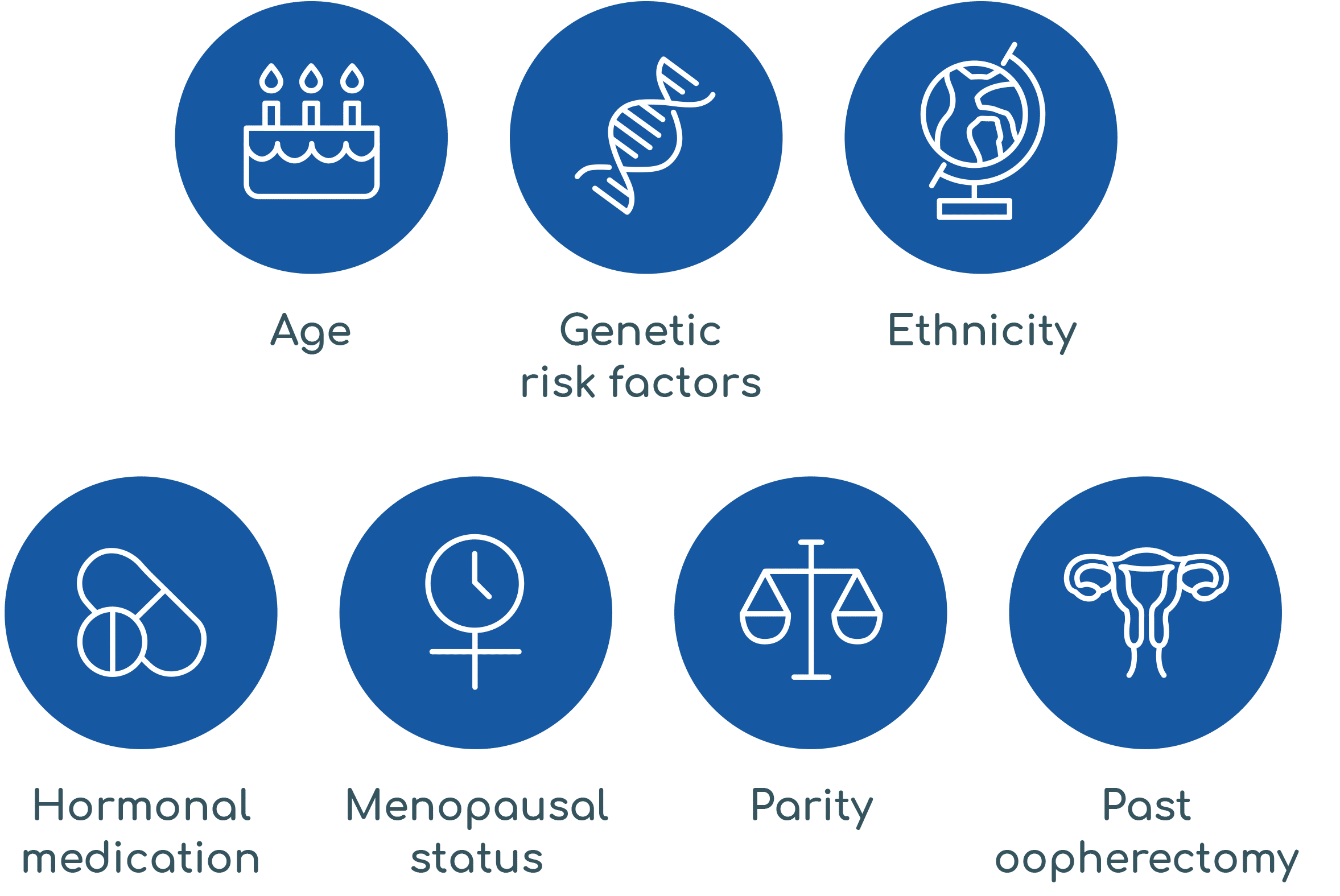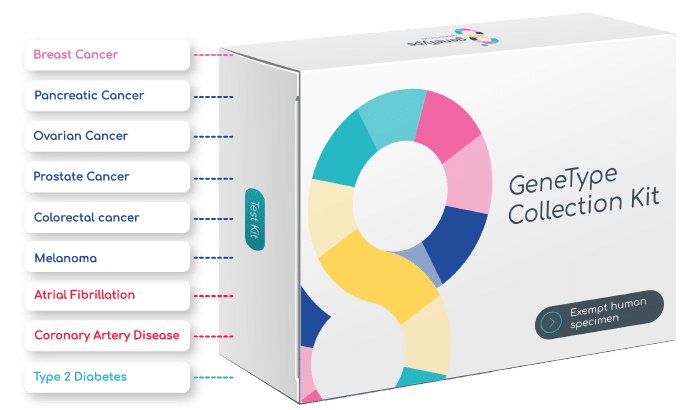Her risk of ovarian cancer is more than her family history¹
Ovarian cancer is hard to screen for.¹
Know her risk. Manage her risk.

Her risk for ovarian cancer is multi-faceted
How do you review her risk of ovarian cancer?
GeneType for Ovarian Cancer assesses her holistic risk of ovarian cancer based on her personalised clinical and genetic risk factors including:


Traditional risk assessment +
polygenic risk score
Facilitates joint decision-making discussion around risk-reducing options1,2
Actionable Clinical Insights
GeneType reports are structured to make the results easy to interpret and communicate to a patient.
The geneType for Ovarian Cancer report includes:
- snapshot of your patient’s 5-year and lifetime risk scores
- interpretation of what their risk scores mean in the context of your local guidelines
- polygenic risk score indicating your patient’s “baseline” ovarian cancer risk
- information about managing ovarian cancer risk factors
- and the types of screening that may be relevant to your patient’s risk.
The geneType Patient
GeneType for Ovarian Cancer is appropriate for:
- Women
- Aged 30 years or older
- No known hereditary breast and ovarian cancer (HBOC) gene mutation e.g. BRCA1 or BRCA2

GeneType testing is simple

Step 1
Register as a provider; our team will provide clinical education and other resources as needed.
geneType will send kits to your clinic to have on hand.

Step 2
Discuss geneType with your patient.
Would geneType help them qualify for additional risk reduction strategies?

Step 3
Complete the Test Requisition form, collect a sample from the patient in the buccal swabs provided and return both to geneType.
You will have the option to use a paper requisition, or a secure, compliant portal to complete the ordering process.

Step 4
Leave the rest to us.
geneType will notify you when your patient’s results are ready.
You will have the option to request a consult with a genetic counsellor, whether to review your patient’s results and/or to follow-up with your patient, as needed.
Do you have questions? We have answers.
If your question is not shown here, please contact us directly.
Is this test reimbursed by insurance?
No. At this time geneType is a self-pay test. However, your patient may use FSA/HSA to pay for the test.
Does this test for the BRCA1 or BRCA2 genes?
No. This risk assessment does not test for hereditary breast and ovarian cancer (HBOC), or any other hereditary cancer syndrome. GeneType is a risk assessment for asymptomatic women in the general population who are either ineligible for HBOC testing, or who have come back as negative carriers following HBOC testing.
How old does my patient have to be to use this test?
GeneType for Ovarian Cancer is suitable for women aged 40 years or older.
Can I order this test if my patient has already tested positive for HBOC (ie. BRCA1 or BRCA2)?
No. This test is not applicable to women who have a personal history of ovarian cancer or who have already been shown to have an HBOC mutation, for example in the BRCA1 or BRCA2 gene, or a diagnosis of a genetic syndrome that may be associated with elevated risk of ovarian cancer.
What’s the difference between geneType and a liquid biopsy?
GeneType is a risk assessment tool to enable you to stratify your patient population. Liquid biopsies, such as the Galleri test are novel, but pricey screening options. A risk stratification tool can help identify your patients that might benefit from a novel screening tool like this one given the paucity of effective early detection tools available.

*Patient eligibility dependent on personal medical history, age and sex
Interested in ordering more than one disease? Order geneType Multi-Test.
See individual disease pages for more information about each test.
The Multi-Risk suite of tests is for adults 40-85 years of age. At maximum, a woman would be eligible for 8 diseases in the panel; a man would be eligible for 7. Starting at age 30, a patient may qualify for geneType's cancer risk assessments only.
Blog posts
Start the conversation about Breast Cancer risk
Under the fluorescent lights of a doctor’s office, it’s not always easy to know what questions to ask. Here are some breast cancer risk questions…
Proactive steps for breast cancer risk reduction
Breast awareness is important whether you are 35 or 75. When you understand your risk, you can be a better advocate for yourself…
GeneType: A new era for Genetic Technologies
Genetic Technologies changed a lot in the last year. Our product innovations, expansion into new therapy areas and acquisitions…
References
1. US Preventive Services Task Force. JAMA 2018;319(6):588–594.
2. NCCN Clinical Practice Guidelines in Oncology (NCCN Guidelines®). Genetic/Familial High-Risk Assessment: Breast, Ovarian, and Pancreatic. Version 2.2022 — March 9, 2022.








